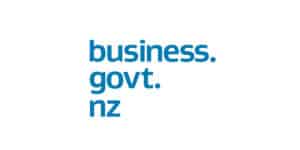Your employees are some of your business’s most important assets. As we go through another alert level change, take the time to talk to them about what you’re doing to look after them, their jobs and your business.
What to do if you have a sick employee
The best way to stop the spread of COVID-19 in the community is for people to stay home if they’re feeling sick.
Encourage employees to stay home if they’re not well, or if they need to look after dependents who are unwell. Talk through their options in terms of sick leave and/or working from home.
Sick leave
Make sure your staff know how much sick leave they’re entitled to and how many days they have owing. Let them know that the days of ‘soldiering on’ are behind us, and taking sick leave is seen as the right thing to do for them, your business and the community at large.
Employees can use sick leave if they’re unwell or if they’re looking after dependents who are unwell. You can’t ask them to take sick leave just because they can’t come to work because of an alert level change. You also can’t ask them to take sick leave if they’re staying home while waiting for a COVID-19 test result and they aren’t experiencing any symptoms.
Employees don’t have to provide a medical certificate until they’ve been off work sick for three days (this includes non-working days). If you ask for a medical certificate before this, you’ll have to pay for it.
Annual leave
Due to alert level changes, you may not have enough work for staff to carry on their usual duties. You might want them to take leave during this period, but remember if you require them to take annual leave, you need to give them at least 14 days’ notice. Try talking to them first to see if you can figure something out that works for both of you.
Read more about employee leave entitlements – Employment New Zealand
When employees aren’t able to come to work
If a worker isn’t able to come to work as usual, talk to them about other options, such as working from home, working from a different location or carrying out alternative duties.
If none of these are viable options, then talk to them about what paid or unpaid leave they might be entitled to.
COVID-19: Addressing health and safety concerns – Employment New Zealand
Employment agreements still rule
Under all alert levels you need to pay your employees and manage their leave based on the terms of their contract.
You can’t change their contract or employment terms without talking to them first and getting agreement in writing. This includes changes to things like the days or hours they work, the functions they carry out and their pay.
In some situations, such as financial, commercial or economic problems, or genuine restructuring of the business, you might be able to put forward a reduction in hours of work or rate of pay as an alternative to redundancy. Usual processes for workplace change would need to be followed, including giving them a fair opportunity to consider and respond to any proposed changes.
Making changes to work arrangements – Employment New Zealand
Vaccines
Encourage and support workers to get vaccinated when the opportunity arises. If you’re concerned about whether your workers need to be vaccinated, you should first do a health and safety risk assessment in collaboration with workers, unions and other representatives to determine whether specific roles must be performed by a vaccinated person. You can’t make individual employees get vaccinated.
Vaccinations and employment relations – Employment New Zealand
Managing work risks – WorkSafe
SOURCE: Business.govt.nz
Annual LeaveBusinessCOVID-19employeeSick LeavesVaccine




